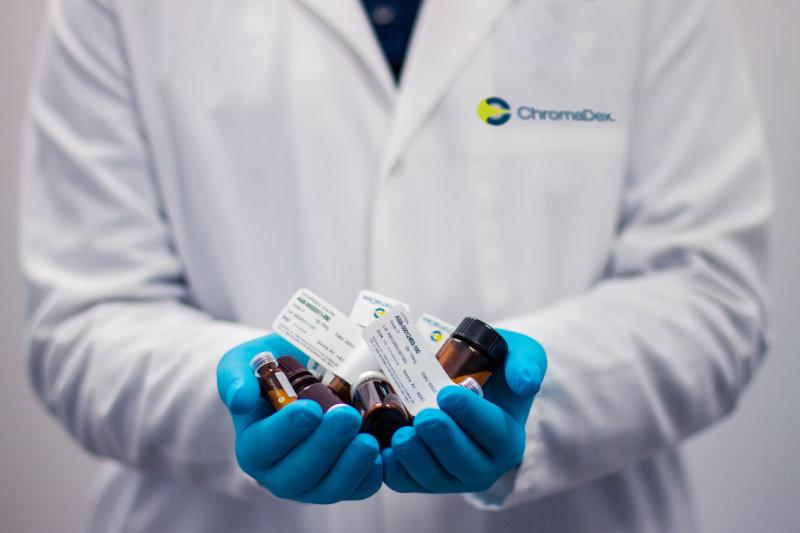- African Development Bank (AfDB)’s Board of Directors has approved the establishment of the African Pharmaceutical Technology Foundation
- The ground-breaking institution that will significantly enhance Africa’s access to the technologies that underpin the manufacture of medicines, vaccines, and other pharmaceutical products
- No institution exists on the ground in Africa to support the practical implementation of Trade-Related Intellectual Property Rights (TRIPs) on non-exclusive or exclusive licensing of proprietary technologies, know-how, and processes
Covid-19 has shown us the weaknesses in the global health system and the risks associated with medical insecurity in Africa.
The continent imports more than 70 per cent of all the medicines it needs, gulping US$14 billion per year. It is no longer sufficient for African governments to rely solely on rich countries and western capital.
According to The Conversation, the Covid-19 pandemic has shown that in times of crisis, developed countries will prioritize their citizens. Therefore, African self-sufficiency in vaccines and chemotherapeutics is thus vital.
Meanwhile, the African Development Bank (AfDB)’s Board of Directors has approved the establishment of the African Pharmaceutical Technology Foundation, a new ground-breaking institution that will significantly enhance Africa’s access to the technologies that underpin the manufacture of medicines, vaccines, and other pharmaceutical products.
Africa has great potential for drug discovery. The continent has natural resources, indigenous knowledge, and human capacity.
AfDB Group President, Dr. Akinwumi Adesina said: “This is a great development for Africa. Africa must have a health defence system, which must include three major areas: revamping Africa’s pharmaceutical industry, building Africa’s vaccine manufacturing capacity, and building Africa’s quality healthcare infrastructure.”
The World Trade Organization and the World Health Organization, respectively, also welcomed and lauded the AfDB’s decision to establish the African Pharmaceutical Technology Foundation.
The Director-General of the World Trade Organization, Dr. Ngozi Okonjo-Iweala, said “The African Pharmaceutical Technology Foundation is innovative thinking and action by the AfDB. It provides part of the infrastructure needed to assure an emergent pharmaceutical industry in Africa”.
The Director-General of the World Health Organization, Dr. Tedros Ghebreyesus, said “Establishing the African Pharmaceutical Technology Foundation, by the AfDB, is a game-changer in accelerating the access of African pharmaceutical companies to IP-protected technologies and know-how in Africa”.
According to an article by CNBC Africa dated June 27, 2022, during the African Union Summit in Addis Ababa in February 2022, the continent’s leaders called on the AfDB to facilitate the establishment of the African Pharmaceutical Technology Foundation. Dr. Adesina, who presented the case for the institution to the African Union said: “Africa can no longer outsource the healthcare security of its 1.3 billion citizens to the benevolence of others.” With this bold initiative, the AfDB has made good on that commitment.
Challenges faced in the pharmaceutical industry
According to an article published by the Economist Namibia on June 27, 2022, global efforts to rapidly expand the manufacturing of essential pharmaceutical products including vaccines in developing countries, particularly in Africa, to assure greater access, have been hampered by intellectual property rights protection and patents on technologies, know-how, manufacturing processes, and trade secrets.
CNBC adds that no institution exists on the ground in Africa to support the practical implementation of Trade-Related Intellectual Property Rights (TRIPs) on non-exclusive or exclusive licensing of proprietary technologies, know-how, and processes.
In an article published on June 28, 2022, The Conversation said access to infrastructure, long-term funding, and supply chain constraints are among the challenges.
In South Africa, spending on research and development (R&D) as a percentage of GDP is low – 0.62 per cent in 2019-2020, down from 0.69 per cent in 2018/2019. Most of this funding is from the government. Business and other R&D investments have also declined in recent years.
For many other countries in Africa, expenditure on R&D is non-existent. China, the US, Israel, and Germany, in contrast, spend on average between 2 per cent and 4 per cent of GDP on R&D. These countries are among the world’s top drug producers.
Read: Covid-19 vaccine manufacturing in South Africa, what is going on?
